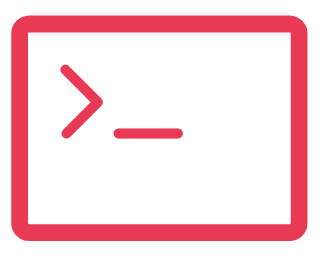Maximizing Organizational Efficiency with CRM Applications
In today’s dynamic business environment, technology stands as the cornerstone of success, enabling companies to bridge the gap between small and large-scale enterprises. Although 99.7% of businesses in the USA fall under the category of small-scale, many struggle to take the leap to the next level. The prevailing misconception that technology necessitates hefty investments without immediate returns often deters them from embracing its potential. However, it is imperative to recognize that technology can be a cost-effective and transformative tool that enhances operations and propels growth.

At Tenetizer Technologies, we have empowered numerous small and mid-sized companies to unlock their true potential by seamlessly integrating CRM solutions. Rather than viewing it as an expense, these businesses have come to understand that it is a strategic investment that ultimately leads to a reduction in overall operating costs.
I. Elevating Customer Acquisition Efficiency with CRM Applications
Strategic ROI Measurement:
By consolidating all marketing efforts within a CRM application, businesses gain a comprehensive view of where their investments are directed and the results they yield. This clarity empowers decision-makers with valuable insights for informed decision-making.
Channel Optimization for Maximum ROI:
In the fast-paced realm of digital marketing, rapid iterations are imperative. A CRM solution equips businesses with the analytics and dashboards needed to discern and prioritize the most effective channels, ensuring resources are allocated judiciously.
Holistic Lead Nurturing:
CRM software meticulously tracks lead generation, interactions, complaints, and status, ensuring a consistent and uniform communication experience across all channels.
II. Streamlining Sales Operations for Optimal Cost Efficiency
Unified Customer Information Hub:
A CRM application serves as a centralized repository for customer information, offering a 360-degree view that empowers customer-facing teams with the insights they need to save time and improve efficiency.
Efficient Sales Process Management:
The dashboard and analytics in a CRM enable sales teams to work seamlessly, from lead generation to follow-ups, resulting in shorter sales cycles and heightened productivity.
Eliminating Duplicate Records:
By removing duplicate customer records, businesses prevent multiple sales representatives from contacting the same customer, thereby reducing effort loss and customer attrition.
III. Service Cost Optimization through CRM Solutions
Empowering Customers with Self-Service Portals:
Implementing a self-service portal streamlines issue resolution, reduces human interaction, and lowers administrative costs while maintaining high responsiveness and adherence to Service Level Agreements (SLAs).
Automated Workflow Management:
CRM solutions automate the assignment of specialized users for specific tasks, ensuring efficient follow-up actions and enhancing service quality.
IV. Ensuring Scalability with Customizable CRM Solutions
Tailored for Growth:
CRM applications are designed to accommodate business expansion without incurring excessive costs. They can be customized to meet evolving operational needs.
V. Reducing Administrative Overheads with CRM Integration
Automated Reporting for Enhanced Efficiency:
With AI-driven automation, the need for manual report creation and resource allocation is significantly reduced, streamlining operations and cutting administrative expenses.
Embracing a Paperless Approach:
The transition away from manual report printing not only conserves resources but also reduces administrative overheads.
Aligning Efforts with Organizational Goals:
CRM solutions align sales, service, and marketing efforts with organizational objectives, minimizing duplication of roles and creating a more horizontally structured organization.
VI. Strengthening Accountability through Enhanced Tracking Mechanisms
Fostering a Culture of Accountability:
CRM applications enable robust tracking of operations, leading to increased accountability and lower overhead costs.
Comprehensive Monitoring for Informed Decision-Making:
Teams can use CRM systems to track key performance indicators, from lead status to conversion ratios and customer satisfaction scores, leading to more efficient resource allocation.
Conclusion
In conclusion, leveraging CRM solutions is a strategic move towards maximizing organizational efficiency and reducing costs. If you’re interested in exploring how CRM applications can benefit your business, we invite you to schedule a consultation with our experts. Contact us and let us help you unlock the full potential of your operations and drive sustainable growth.
